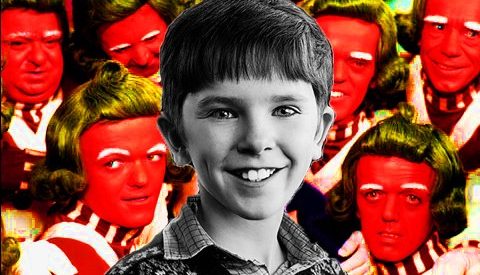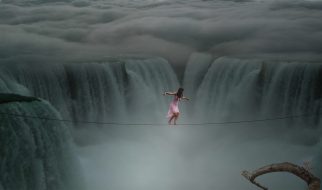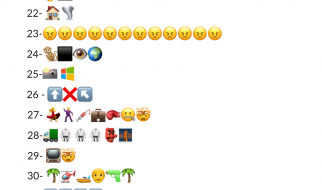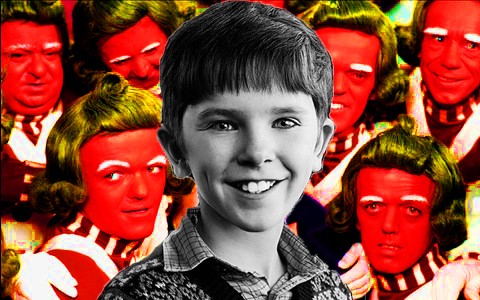
History, it is observed, repeats itself. First as tragedy, then as farce. Then, as the uprising of the Oompa Loompa class against it?s cruel and aloof tyrants.
Just as the House Romanov of Russia, Willy Wonka must secure an heir to his throne. He discovers a single gray hair. He is ailing, sickly, after years of indulging and drinking in great feasts, smoking exotic strains of tobacco from the Loompa tribes, never meant for his Anglo lungs, and celebrating the conquests of lands abroad. The borders of his chocolate empire are far flung. The sun never sets on Willy Wonka and his heart of Dark Chocolate.
Through years of imperial venture, he has secured trade routes in the densest jungles of the world, using deceit and force alike to secure a massive oppressed class of peasant laborers called the Oompa Loompa. For generations the Loompa have toiled in the expanses of his factory?s interior: The great mountains, unforgiving deserts, and lush chocolate prairies, magnificent in their beauty, but made cruel by the lust of man. Their bodies have become hunched and hardened, their minds toughened. Only the strongest and most ruthless survive, all by the nature of the twisted Darwinian experiment of Chocolate production.
Meanwhile, Willy Wonka must defend his harsh despotism by hiding it. Locked away by massive cast iron victorian gates lies his fortress. The public knows not what wonders ? or horrors ? lie inside. Each morning at dawn, 50 trucks leave the compund. Each evening, 50 return. Not a word spoken of it.
To dare trespass those gates would be to fall forward into a bottomless chasm while reaching upward for God himself.
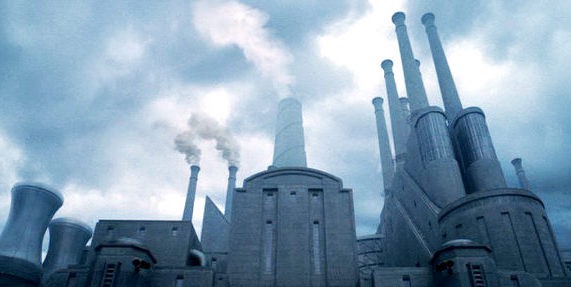
On the outskirts of his empire lies the ruins of what once could be called a city. Only three services remain: the laundromat, the morgue, and one chocolate store ? the final holdout of a petty-bourgeois shopkeeper, yet still tied at the neck and kept on a short leash by Wonka.
Kafka once said ?There is hope out there? but it is not for us.?
Wonka must secure an heir. Quickly. He sends out 5 golden tickets, the metaphorical five inbred children of the Wonka house. The recipients are brutish, brattish and cruel, propelled through their lives by gold-lust and dreams of chocolate empire.
All except one, that is: Charlie Bucket. He is receptive. Reserved. He gazes in wonder at the world around him, and we are meant to gaze back ? and even see ourselves in the reflection of his milk chocolate pupils? Yes, we are meant feel sympathy for the soon-to-be monarch.
Like Tsar Nicholas II, he will soon be prepared for a life of rule, given all the training and tools to do it ? yet fall pathetically short. He stands on the shoulders of the Wonka giants, defended by the chocolate cossacks, yet lacks the wit and fortitude to rule an empire.
Upon realizing his victory in the lottery, he chooses his Grandfather to go forth with him. An elderly, presumably disabled man, he suddenly jumps out of bed upon hearing the news! An ancient and geographically tethered sorcery? Maybe a facade the whole time, excusing himself from labor while the wife cooks his many gray shirts.
Of course, he represents Rasputin. A wise man who comes into the story by chance alone he heals himself and those around him be sheer mysticism, becoming irresistible to the noble women of the House, represented by the old women with whom he shares the large singular bed for some reason.
His competition is nearly gone. Veruca has been destroyed by her own greed. Mike Teavee by imperialist militarism. Augustus Gloop by a bunch of chocolate.
Charlie meekly takes on his task. Traveling through the factory, he becomes acquainted with the many mechanisms and privileges of being the sole autocrat of an empire. The Tsar. He is nearly ready.
There is one issue.
As Russia was crippled by the great famine of 1891, so too is the chocolate factory. Made stale by economic downturn and sluggish response from the Wonka regime, his workers toil long hours with little compensation. Outcries for an 8 hour workday remain unheard. The energy of the revolution surges between peasant and industrial laborers alike. Behind closed doors, the Chocolate Revolution stirs. The hibernating Marxism of the Loompas has been awakened.
As the Oompa Loompas gain consciousness and unity, we can see the formation of a revolutionary vanguard, a cabal of singing dancing Loompas that dispatch each child with expert snark and cynicism.
Charlie stands in awe of their collective power. Does he allow them to collectivize? Allowing them a parliament could stifle their taste for vengeance. No. Instead, he thrusts forward, accepting the task laid before him by his monarch ancestors. To kill is to survive. To liberalize is to die.
At the end of the movie, we are shown a house. Snow falls outside, maddeningly calm. They are feasting inside, impervious to the frigid conditions of the outside world. As the camera pans out, we hear their witty banter. The screen fades to black and the credits role. The movie has ended.
Except the story hasn?t. The house is not his family house. It is the metaphorical Ipatiev house. Recognizing Charlie?s gross incompetence, the Oompa Loompa vanguard chooses their moment and storms the house. They lay waste to their cruel oppressors in a Jacobin-esque revelry. Like a Spanish conquistador, Wonka has boiling molten chocolate poured down his throat.
Such displays of cruelty only drives the Loompa more crazed for vengeance. They lay waste to Wonka?s personal belongings, taking back hoarded wealth after generations of exploitation. They destroy his great throne, using the wood to barricade themselves inside the Chocolate Factory.
Order has been restored once again. The anarcho-primitivist ideals of the Loompa are now brought to fruition. They may reach back in time to retrieve a harmonious candy existence, and step forward into it.
One Loompa walks out the factory and through the icy field until he reaches the front gates. Standing in pensive thought for just a moment, he reaches for the massive cast iron doors. With a resolute posture, he closes them. The gate is shut once again.
The Chocolate Gods smile.
